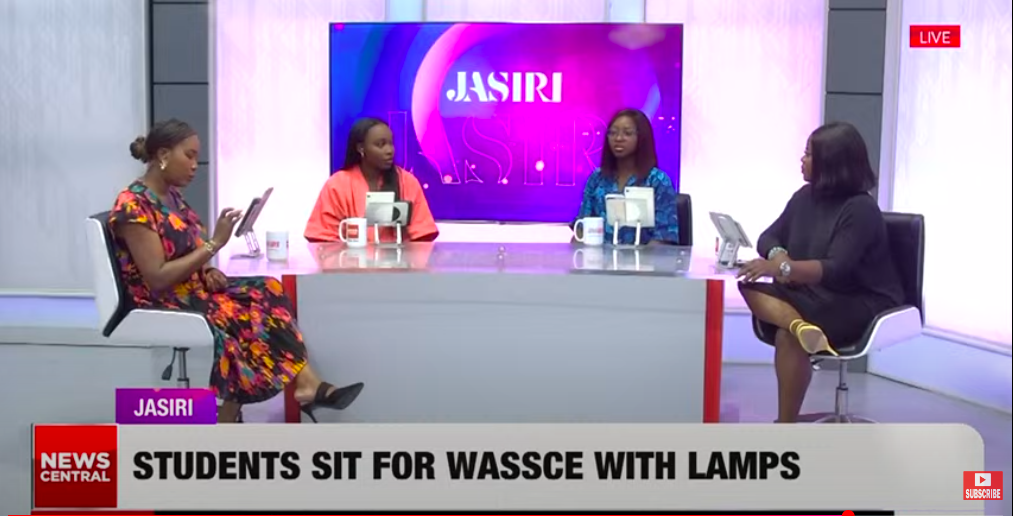Viral social media videos showing Nigerian students taking their 2025 West African Senior School Certificate Examinations (WASSCE) by candlelight and flashlight late into the night have caused widespread outrage across the country.
The shocking visuals were discussed on Friday’s “Jasiri” programme on News Central TV, prompting concerns from hosts Blessings Mosugu, Tolulope Adeleru-Balogun, and Katherine Obiang and igniting a strong reaction from the public and lawmakers.
One video, posted by X user @omolomo_o, depicted students in near total darkness, illuminated only by shared torchlights and phone flashes, while writing their English language examination at 9:42 PM.
The user’s post decried the scene, stating, “This is a school WAEC centre in Nigeria currently; they’re writing WAEC right now. It is 9:42 pm, and they are students forced to use lamps to write their English WAEC exam in total darkness.”
Blessings Mosugu noted the “palpable discomfort” of the students. She highlighted that while using candles for exams isn’t entirely new in Nigeria, the late hour was “really unusual.” This issue, confirmed by various X users, isn’t an isolated incident, with similar scenes reported from states including Delta, Taraba, Osun, and Lagos’s Jakande Estate.
The controversy has drawn the attention of the House of Representatives Committee on Basic Education and Examination Bodies.
The committee has issued a 24-hour ultimatum to the West African Examinations Council (WAEC), demanding their appearance today, Friday, May 30, 2025. This summons follows WAEC’s failure to honour a previous invitation to address concerns surrounding the ongoing examinations.
Tolulope Adeleru-Balogun emphasised the unacceptability of the situation, regardless of safety concerns. “Even if the country is safe… it is wrong,” she asserted, pointing out that students were writing exams “into the late hours of the night” across the nation.
Mosugu criticised the “double standards” in the exam structure, contrasting it with JAMB’s early morning exam schedules.

She expressed dismay that an exam slated for the afternoon stretched so late, causing students to wait for extended hours, potentially affecting their performance.
“It’s so disheartening to see this happening. It has trickled down from the governance to children who are supposed to be writing exams,” she lamented.
Katherine Obiang, another host on the programme, highlighted the inherent dangers of the situation. “Do you know how dangerous it is to have asked the students to come with candles?” she questioned, also stressing the insecurity, forcing parents to wait anxiously outside.
She cited a tweet reporting a paper meant to arrive at 8:00 AM, arriving at 8:00 PM, questioning the rationale for not deferring such papers to the following day.
Obiang also brought attention to the economic hardship, suggesting that many students would have arrived at the exam halls without eating, adding to their plight.
“It is already difficult that not all parents can send their children to school; those who say, Let us try, you are frustrating them,” she concluded.
The widespread outrage underscores growing concerns about the conduct of national examinations and the welfare of students amidst challenging circumstances in Nigeria.


 Trending
Trending 